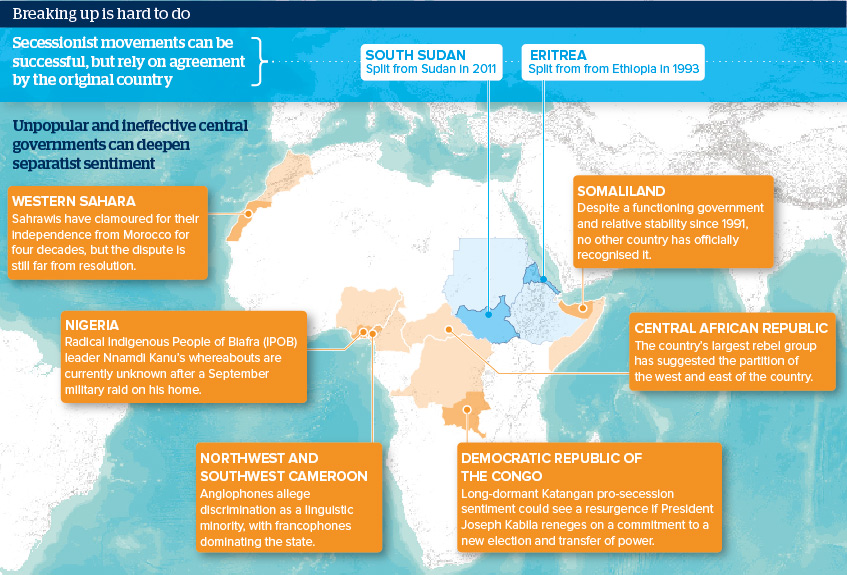Clampdowns boost appeal of secessionism in Africa
But actual independence is difficult to accomplish
Source: Oxford Analytica
Outlook
Security forces’ repression is having a radicalising effect on regional ethnic, linguistic and religious minorities. In Cameroon, violence against anglophone demonstrators resulted in 17 protesters being killed on October 1. Once fringe demands, calls are growing for full autonomy for the predominantly anglophone Northwest and Southwest regions in a ‘Southern Cameroons/Ambazonia’ state.
Meanwhile, the Nigerian military’s suppression of pro-Biafra activists in the south-east comes at a time of mounting ethnic tensions nationwide. Fears also persist of a potential disruption of the ‘north-south’ alternation of presidential power – should northerner President Muhammadu Buhari become too ill to finish his term or die in office.
Impacts
- International civil society will pressurise Western governments to condemn anti-secessionist crackdowns.
- Full independence for most groups is unachievable, but increased autonomy and state representation is possible.
- Despite latent sympathy, international and regional bodies will eschew formal secessionist recognition.
- Successful secessionist movements will only emerge through the agreement of the ‘mother’ nation -- as for South Sudan and Eritrea.
See also
- African secessionism will challenge national unity - Nov 8, 2017
- Cameroon’s anglophone resistance will endure - Jul 5, 2017
- More graphic analysis
